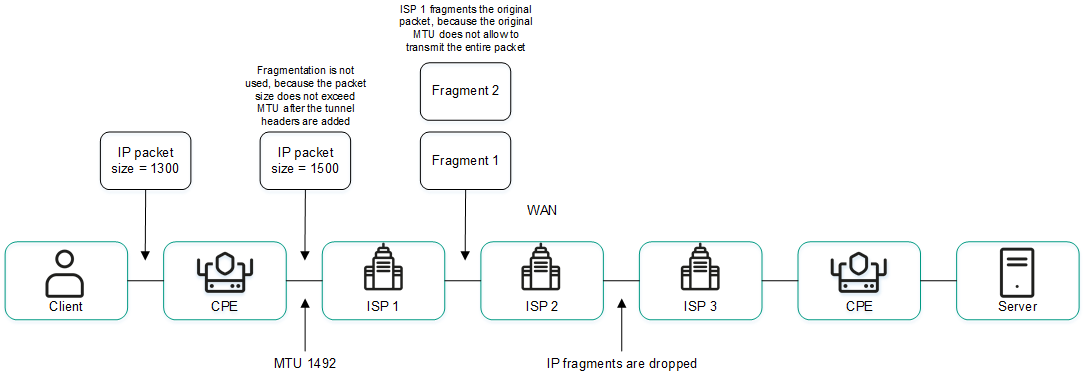Determining the effective MTU in a link
Kaspersky SD-WAN can determine the supported MTU (maximum transmission unit) size on tunnels between two devices (a CPE device and an SD-WAN gateway or between two CPE devices).
Determining the maximum MTU size on tunnels is necessary to ensure the passage of user traffic through the SD-WAN network when the MTU on the underlay network is too low, and fragmented packets are blocked on the subsequent hop (see the figure below).

Example of a link with a reduced MTU size and fragmented packet getting dropped
The supported MTU size is calculated by sending variable-payload LLDP packets through all tunnels on the CPE device and the SD-WAN gateway. The minimum detectable MTU size is 1280 bytes, and the maximum size is 1500 bytes.
The supported MTU size is calculated:
- When the CPE device is turned on.
- With the frequency set in the topology.link.pmtud.scheduler.interval.sec
propertyof the SD-WAN Controller. By default, the frequency is set to 86,400 seconds. - Manually when you request it.
You can calculate the supported MTU size on an individual tunnel. The tunnels are displayed in a common table in the Tunnels section; in the graphical topology in the Topology section; and in the CPE device configuration on the Tunnels tab. Only tunnels built using the particular CPE device are displayed in the configuration of that device.
Supported MTU sizes are displayed in the MTU column of the tunnel table. If the value has not been calculated yet, the Unknown value is displayed.
To calculate the MTU on a tunnel, use the following instructions:
